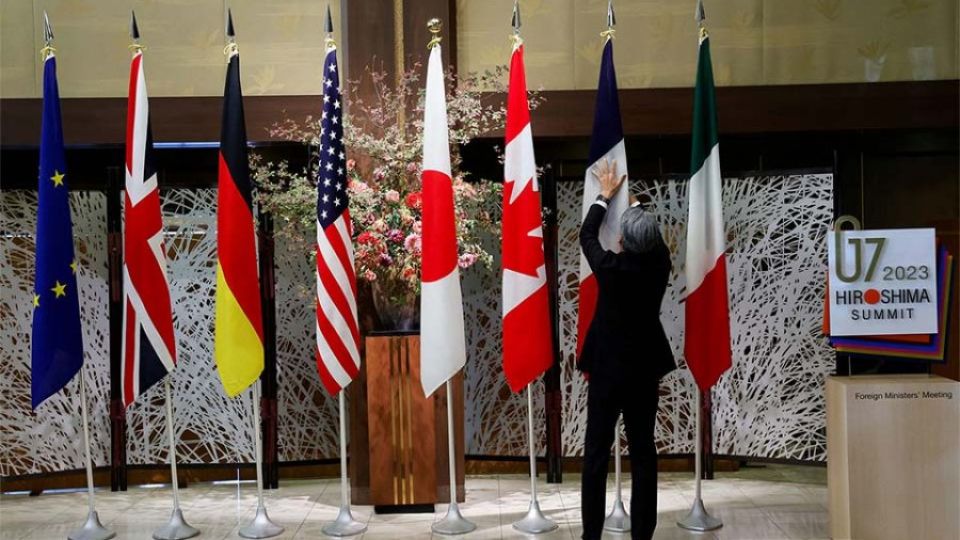January 10, 2025
TOKYO – The lineup of the leaders of the Group of Seven (G7) advanced nations is set to change drastically. Canadian Prime Minister Justin Trudeau has been forced to announce his resignation, while U.S. President-elect Donald Trump will soon return to power.
With many countries, including the United States, moving toward putting their own country’s interests first, will the G7 nations be able to unite and support the system of international cooperation? The G7 is facing a challenging time.
This year’s G7 summit will be held in Kananaskis, Canada, in June. Trudeau, who has been serving as prime minister for nine years and is the longest-serving leader among the G7 countries, was supposed to chair the summit. However, he has announced he will resign as prime minister because his ruling minority government has come to a standstill.
Meanwhile, Europe continues to experience political turmoil with the rise of the far-right forces amid dissatisfaction with the influx of immigrants and high prices. Last year in Germany, Chancellor Olaf Scholz lost a confidence vote. There is a strong possibility that a general election in February will bring a change in government.
The administration of French President Emmanuel Macron was also reduced to a minority government in last year’s general election, and there have since been appointments and resignations of prime ministers. Macron’s leadership is also declining.
As a result, most of the leaders at this year’s G7 summit will have been in office in less than a year and will have limited diplomatic experience, with the exception of Macron, who took office in 2017, and Italian Prime Minister Giorgia Meloni, who took office in 2022. It cannot be denied that there is a lack of confidence in the new leaders.
It seems certain that Trump, who will join this lineup, will further aggravate the G7’s turmoil.
At the summit in Charlevoix, Canada, which Trump attended in 2018 during his first term, he caused a rift by claiming world trade is unfair and did not approve the leaders’ declaration.
This year marks 50 years since the first summit was held in 1975 among the six countries of France, the United States, Britain, Germany, Japan and Italy. It began as a framework for the leaders of developed countries to meet and discuss global economic issues such as the oil crisis and financial instability.
The G7 has also been a forum for discussion of political situations of the time, and it has played a certain role in stabilizing the international order. At the same time, however, as the number of issues in new fields that cannot be resolved by developed countries alone, such as climate change, grows, the limitations of the framework have been pointed out.
In response to the collapse of the U.S. investment bank Lehman Brothers in 2008, other frameworks have been established that include emerging economies and other nations, such as the Group of 20 major economies. However, these have not functioned as problem-solving frameworks, as member nations often have conflicting interests due to differences in political systems, economic scale and other factors.
Conflict continues in Ukraine and the Middle East. The G7 must now work together to demonstrate a standard that aggression and killings that give no consideration at all to humanity will not be tolerated, and it must strengthen efforts to expand the circle of international cooperation.

